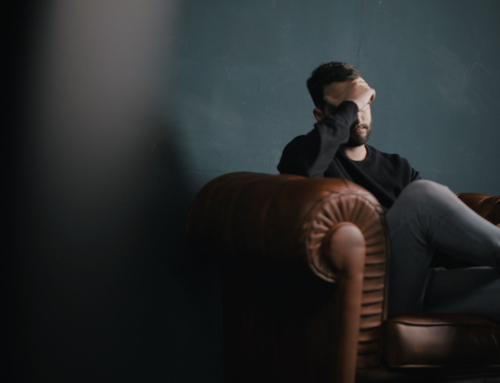Social anxiety can make life challenging. Everyday activities become a struggle. You may not be able to shop inside stores anymore, attend social events, or even spend time with friends. Social interactions are no longer straightforward when your heart and mind race and you worry about how to interact with others or what they think about you.
Holiday shopping becomes relegated to online only because you no longer want to deal with the anxiety and the panic. The symptoms of social anxiety will keep you isolated from friends and family, causing you to miss out on being with others in ways that nourish our souls. If you believe you have social anxiety, you may need professional help so you can get back to living your life.
Social Anxiety Disorder.
 cSocial anxiety can develop at any age, but the roots of the condition often stem from childhood. If you grew up in an environment of being bullied, your parents were overprotective, or you experienced public humiliation, your chances of suffering from social anxiety are higher. Genetics and family history also play a role.
cSocial anxiety can develop at any age, but the roots of the condition often stem from childhood. If you grew up in an environment of being bullied, your parents were overprotective, or you experienced public humiliation, your chances of suffering from social anxiety are higher. Genetics and family history also play a role.
There are various degrees of social anxiety, from mild to severe. On one end, you may have the nagging thought that you should escape a conversation before embarrassing yourself. Conversely, you may fear attending an online video meeting because you worry that the other participants may judge you.
Worrying about offending someone with a smell, speech, or appearance will keep you from enjoying events with your family. Your spouse may have little patience for your mental condition when they want to go out and have fun, and you are afraid to sit in a crowded movie theater. There may be no basis for these beliefs, but they are cemented into your psyche, and dislodging them may take the help of a professional counselor.
Signs of social anxiety.
The signs of social anxiety are similar in adults and children. Children may refuse to do a speech presentation because they fear what their peers may think and say. Children with social anxiety may skip school altogether and eventually quit before graduation if the stress is severe.
Adults with social anxiety will keep a distance from others at work, preferring to work alone. They may be excellent in a team environment, but they spend the time worrying about what others think of them. When forced to work with others in close proximity, they may call off work regularly.
Common signs of social anxiety include:
- Racing heart.
- Blushing.
- Trembling.
- Speaking too softly.
- Trouble getting the words out.
- Feelings of impending doom.
- Headache.
- Gastrointestinal distress and cramps.
- Nausea.
- Wanting to escape or turn around and go home.
- Going to extremes to avoid a social situation.
- Panic attacks.
 Your signs of social anxiety may morph over time. You may no longer feel comfortable eating in front of others or returning items to a store. You may sign up for an event out of excitement but face dread as the date approaches. You may be unable to use a public restroom with more than one stall.
Your signs of social anxiety may morph over time. You may no longer feel comfortable eating in front of others or returning items to a store. You may sign up for an event out of excitement but face dread as the date approaches. You may be unable to use a public restroom with more than one stall.
Social anxiety is manageable, and lifestyle changes can ease some symptoms. There are also psychotherapy treatments available where you can learn new skills to reduce the effects and slowly move back into the social scene.
Treatment for Social Anxiety Disorder.
Treatments for social anxiety vary depending on symptoms. Psychotherapy, calming techniques, and lifestyle changes can help alleviate social anxiety. Your counselor can offer more suggestions on increasing your chances of overcoming social anxiety.
Calm your nervous system: deep breathing.
Social anxiety is felt in our bodies because our nervous system is sensing danger and putting us into “fight or flight” mode. Deep breathing activates the part of our nervous system that promotes relaxation. It can also help to reduce stress hormones, thus reducing the physiological and psychological effects of stress and anxiety.
When social anxiety is triggered, try to remember to pause and take a few deep breaths. When faced with a stressful situation, we tend to breathe shallower or even hold our breath longer than is necessary. You may need to step away from the crowd to focus on your breath. Take a deep breath, feeling your lungs expand, count to three, then exhale slowly. Repeat this pattern a few times until you begin to calm down.
Move consistently.
When you exercise, you engage in deeper breathing and increase blood flow. Endorphins are released into your bloodstream after a good workout. These endorphins are pleasurable and leave you happy, reduce pain and body aches, and lower stress levels. Consistently exercising can help manage the symptoms of social anxiety.
Choose a type of movement that works for you and aim to get your heart pumping. Increasing your heart rate will get your body to release endorphins that will increase your self-esteem and sense of well-being. When you lead a healthier lifestyle, your self-confidence grows, and confidence is necessary for lowering the symptoms of social anxiety.
Make sleep a priority.
Sleep deprivation can contribute to anxiety and depression. Without enough restorative sleep, your appetite changes, you feel sluggish, and you lower your immune system. Yet, anxiety can change your sleep patterns, making it difficult to fall asleep or stay asleep.
Poor sleep can exacerbate social anxiety and lead you to isolate. Set a bedtime each night, and turn off televisions and digital devices. Create a nightly routine to help you wind down each evening. Make it a rule not to check social media or emails after a specific time. It is tempting to stay awake after your children go to bed and try to catch up on your favorite shows, but for the sake of your health, turn in instead.
Slowly engage in social activities.
 You may want to enlist the help of a close friend and slowly engage in social activities. Start small by grocery shopping in a less busy store. Begin attending events or shopping in slightly more populated places. Exposing yourself to uncomfortableness may slowly confirm that you can do this. You are rebuilding your confidence. Your friend is with you if you suddenly need to leave and serves as your emotional support.
You may want to enlist the help of a close friend and slowly engage in social activities. Start small by grocery shopping in a less busy store. Begin attending events or shopping in slightly more populated places. Exposing yourself to uncomfortableness may slowly confirm that you can do this. You are rebuilding your confidence. Your friend is with you if you suddenly need to leave and serves as your emotional support.
Another great way to face your fear in a small group is to join a public speaking group. This group takes turns giving speeches and presentations. It is a way to practice communication skills in a safe environment with others who need to become better public speakers.
Every group is different, but you may only need to give a short speech once a month or yearly. In the meantime, you can practice active listening and making eye contact with the speaker. Be sure to take good notes on what the speaker is doing well and practice that at home.
Try therapy.
Consider psychotherapy if you would rather have guidance from a licensed professional counselor on how to address social anxiety. Your counselor may suggest exposure-based Cognitive Behavioral Therapy (CBT), talk therapy, and group therapy sessions. With CBT, your counselor will monitor your public excursions by having you try a social situation and report what technique you used and how it felt.
Talk therapy in individual sessions is also beneficial. The one-on-one interaction will make things less awkward, making you more likely to be open-minded and less self-focused. Therapy can also help to uncover and address the root cause of a person’s social anxiety. Sessions may range from once to a few days a week.
Researchers have found that group therapy for those dealing with social anxiety effectively manages symptoms. The groups are small, so it is an excellent place to practice the new skills with others. You do not have to worry about being judged by anyone in the group as they are all there for the same anxiety disorder. The session is private, confidential, and in a safe environment.
Getting help for social anxiety.
 Social anxiety is crippling. Your friends and family may not understand how almost tangible the signs of social anxiety are and how they affect you physically and emotionally, but there is hope! A counselor can assess your social anxiety and collaborate with you on what treatment is best for the severity of your symptoms. Reach out today to schedule a risk-free session and begin the journey to alleviating your social anxiety.
Social anxiety is crippling. Your friends and family may not understand how almost tangible the signs of social anxiety are and how they affect you physically and emotionally, but there is hope! A counselor can assess your social anxiety and collaborate with you on what treatment is best for the severity of your symptoms. Reach out today to schedule a risk-free session and begin the journey to alleviating your social anxiety.
“Pensive”, Courtesy of Vanessa Garcia, Pexels.com, CC0 License; “Looking Through the Fence”, Courtesy of Andrea Piacquadio, Pexels.com, CC0 License; “Crowded Square”, Courtesy of Davi Pimentel, Pexels.com, CC0 License; “Standing in the Sun”, Courtesy of Jill Wellington, Pexels.com, CC0 License









